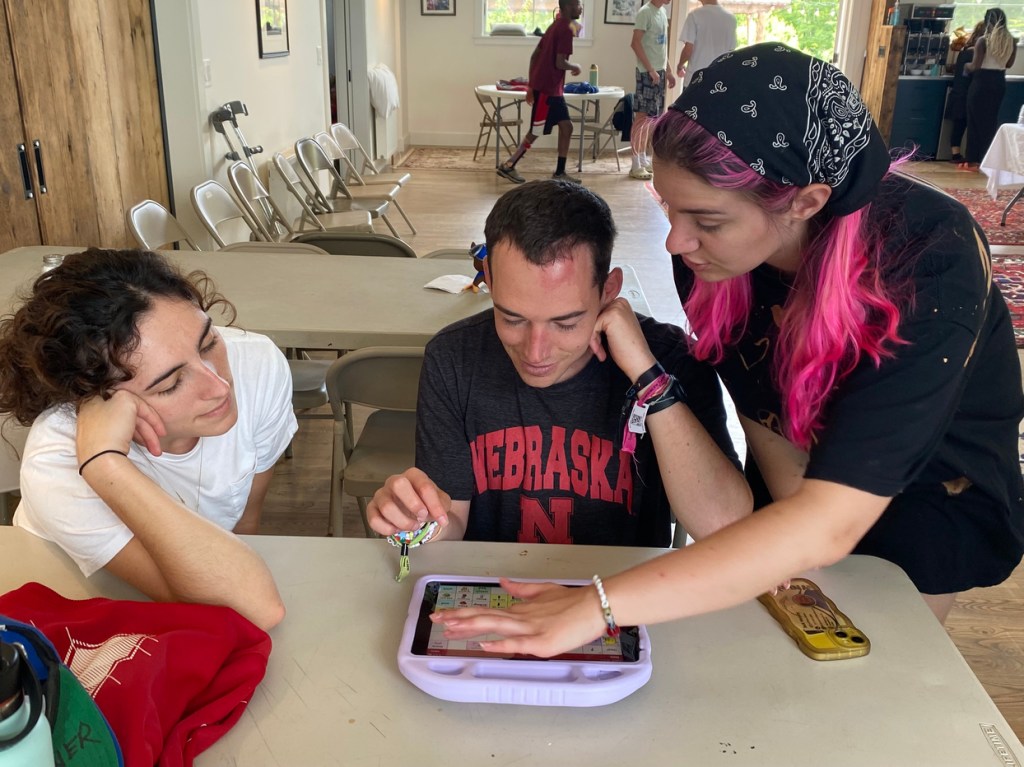National Science Foundation grant bolsters Northeastern’s work to diversify computer science field

Northeastern has received a $1 million grant from the National Science Foundation to expand the university’s ALIGN Master of Science in computer science program, creating even more opportunities for students from demographic groups traditionally underrepresented in computer science fields. The grant will fund scholarships and support services for more than 60 students over five years, enabling the students to try the first semester for free.
ALIGN is a master’s degree program specifically designed for professionals who want to transition into science, technology, engineering, and mathematics fields, but who do not have undergraduate degrees or work experience in these areas. ALIGN MS in CS students have come to the program from a variety of backgrounds, including English, philosophy, business, mathematics, biology, and classics. The scholarships funded by this grant, combined with robust co-op opportunities and lucrative job prospects in the field, will position participating students to graduate from the program with little to no debt, according to ALIGN coordinators.
What I love about the ALIGN MS in CS is that not only does it create diversity of demographics, but it also creates diversity of thought.
Carla Brodley
Dean of the College of Computer and Information Science
“The scholarships funded through this grant will allow people to try computer science with limited financial risk,” said Carla Brodley, dean of the College of Computer and Information Science. “We know that roughly 75 percent of people who try computer science for the first time love it and will continue to finish the entire degree. If we can make the first semester virtually free, then people new to the field can try it with little financial risk. That’s important to me.”
The grant will provide scholarships for a total of 64 students and will largely cover the cost of the first semester; one of two semesters that provide an ‘academic bridge’ for students to the computer science master’s courses. The grant will help fund the college in building a support infrastructure, including a cohort system, seminars, mentoring, leadership development, and internship placement to increase the likelihood of success. Qualified students can apply online.
“In order to remain globally competitive, the U.S. needs to maintain and expand a well-educated STEM workforce,” said Ellen Carpenter, program officer in NSF’s Division of Undergraduate Education. “This includes increasing educational opportunities for historically underrepresented populations, and providing them with the support they need to succeed.”
“This project works to address those objectives by taking the proven approaches developed through the ALIGN Scholars Program and applying them to a diverse population of students,” Carpenter said.
Leena Razzaq, director of the ALIGN MS in CS program and assistant teaching professor in the College of Computer and Information Science, said of the grant, “It’s great to be able to make this program bigger and better, and to make it accessible to people who maybe didn’t think they had the time, money, or support to do this.” Razzaq is co-principal investigator for the NSF grant with associate teaching professor Amit Shesh.
“This is something that’s so important for technology, because with more diversity, there is increased creativity,” Brodley said. “What I love about the ALIGN MS in CS is that not only does it create diversity of demographics, but it also creates diversity of thought. It’s important that one of the most lucrative industries reflect the demographics of our country and our world.”





